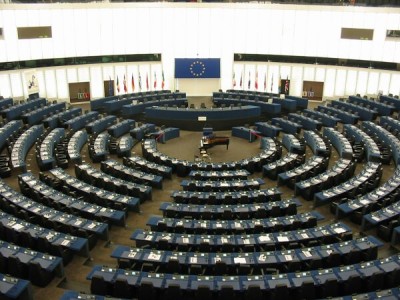The EP parliamentary elections in Bulgaria took place in the midst of what can only be called a crisis of public representation. It is widely believed that these elections may hold the key to the resignation of the ruling coalition between the Bulgarian Socialist Party (BSP) and the Movement of Rights and Freedoms (MRF), unofficially supported by the nationalistic party „Ataka“. As a result, voter turnout was higher than expectations and also much above the result of the previous EP election – about 36% of eligible voters took part in the elections.
The opposition Citizens for European Development of Bulgaria (CEDB) was backed by 30.40% of the voters, thus securing a significant victory over the ruling Bulgarian Socialist Party (BSP), which managed to attract just 18.94% of the votes. BSP’s coalition partner, the ALDE-affiliated Movement of Rights and Freedoms (MRF), came in third, by managing to secure 17.26% of the votes. Their result was better than expected, but it was lower than the 20.26% that MRF got in the previous EP elections and was surrounded by controversy. Both MRF and BSP were subject to numerous reports for buying votes, as well as for pressuring and harrassing citizens of smaller settlements to vote in their favour. Cases of such illegal practises, including both ruling parties, were shown on the national TV. After the elections MRF’s most controvercial EMP candidate – the media mogul Delyan Peevski, who won an EP seat, decided to step down in favour of Iskra Mihailova – the current minister of ecology.
The last two parties that managed to secure seats in the future EP are new to the European scene – the populist Bulgaria without Censorship party (BWC) and its coalitional partners got 10.66% of the votes, while the centre-right Reformist Bloc (RB) – 6.45%.
The low public support for the current ruling socialist party lead to calls for early elections by practically all other parties – CEDB, CP and RB. The third member of the current socialist-ethnic turkish-pro-Russian nationalist ruling alliace, the xenofobic party „Ataka“, got less than 3% of the votes, despite its aggressive and expensive anti-EU campaign.
The final results of the elections mean that Bulgaria’s 17 seats in the EP will be divided in the following way: CEDB – 6, BSP – 4, MRF – 4, BWC – 2, RB – 1.




